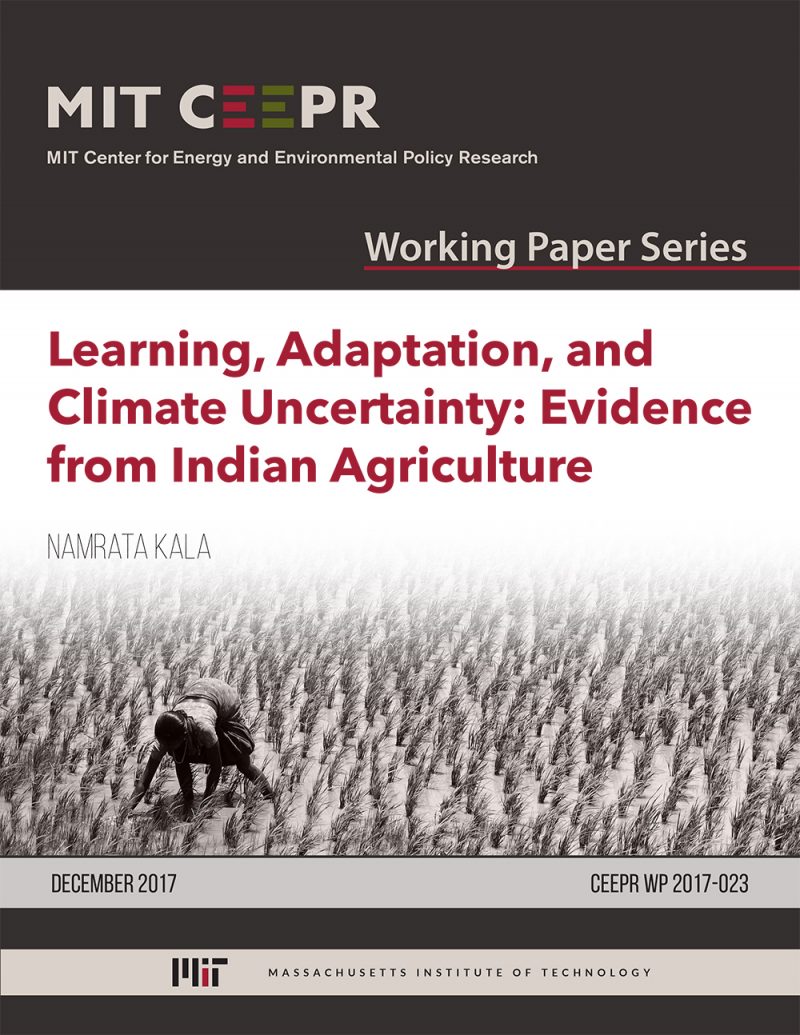Learning, Adaptation, and Climate Uncertainty: Evidence from Indian Agriculture
Namrata Kala
December 2017
The profitability of many agricultural decisions depends on farmers’ abilities to predict the weather. Since climate change implies (possibly unknown) changes in the weather distribution, understanding how farmers form predictions is essential to estimating adaptation to climate change. I study how farmers learn about a weather-dependent decision, the optimal planting time, using rainfall signals. To capture the potential uncertainty caused by climate change, I develop an empirical framework that estimates, and finds support for, a general robust learning model in which farmers believe that the rainfall signals are drawn from a member of a set of rainfall distributions. The belief that the rainfall signals are drawn from a set of rainfall distributions rather than a single distribution are especially pronounced in villages that have experienced recent changes in rainfall distributions. This indicates that farmers respond to greater (Knightian) uncertainty in their environment by modifying their predictions to be robust to such uncertainty.



